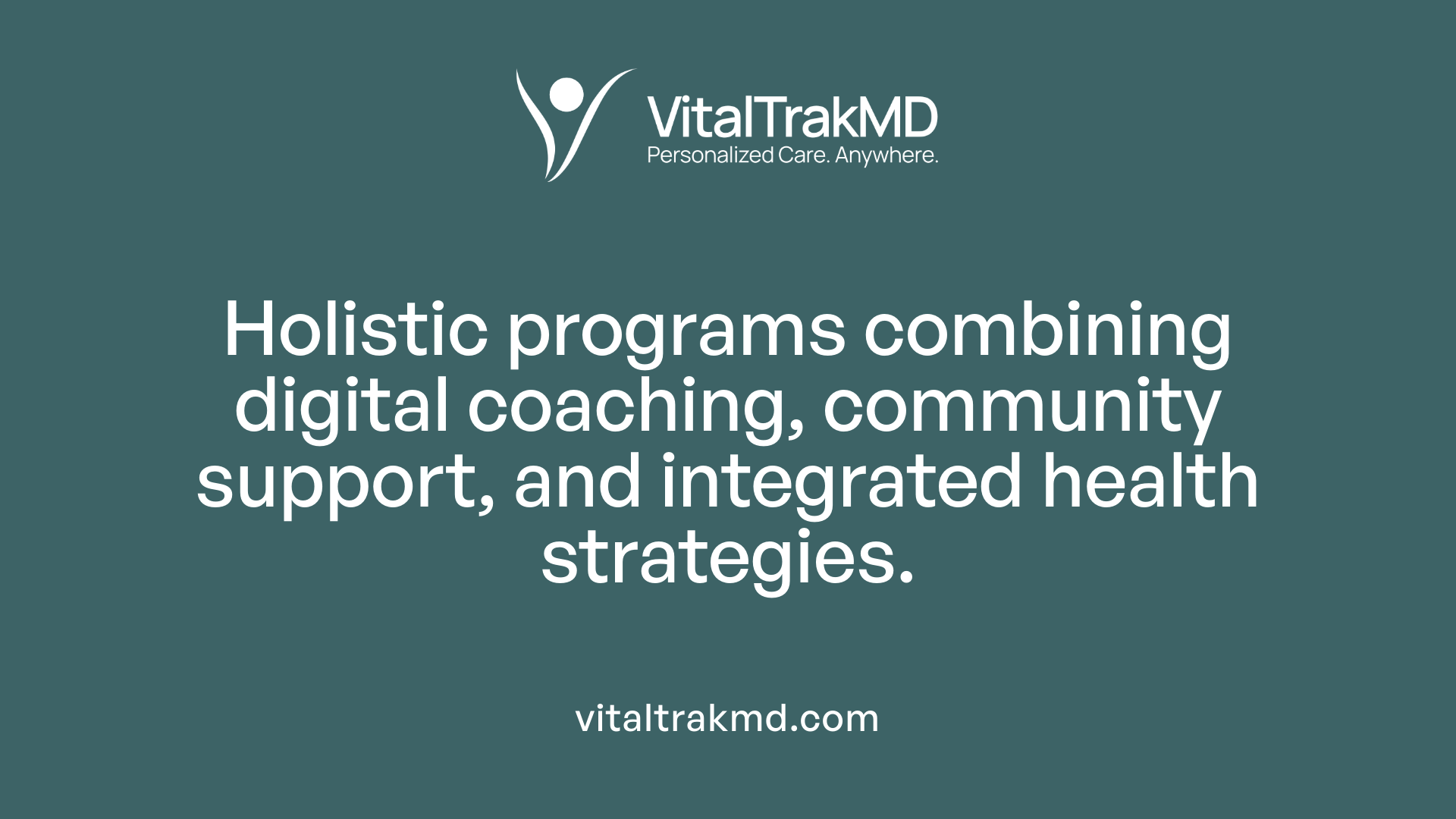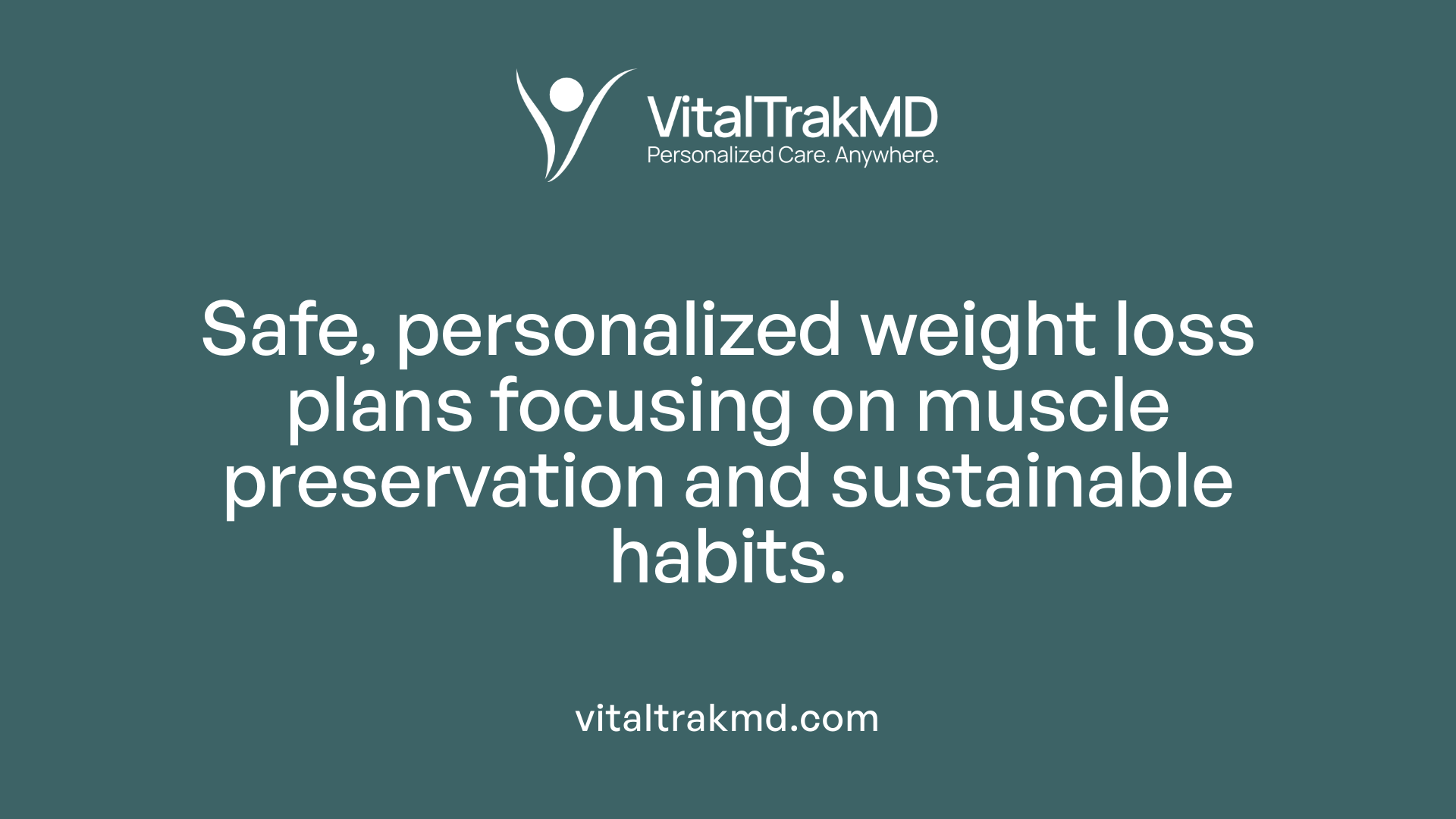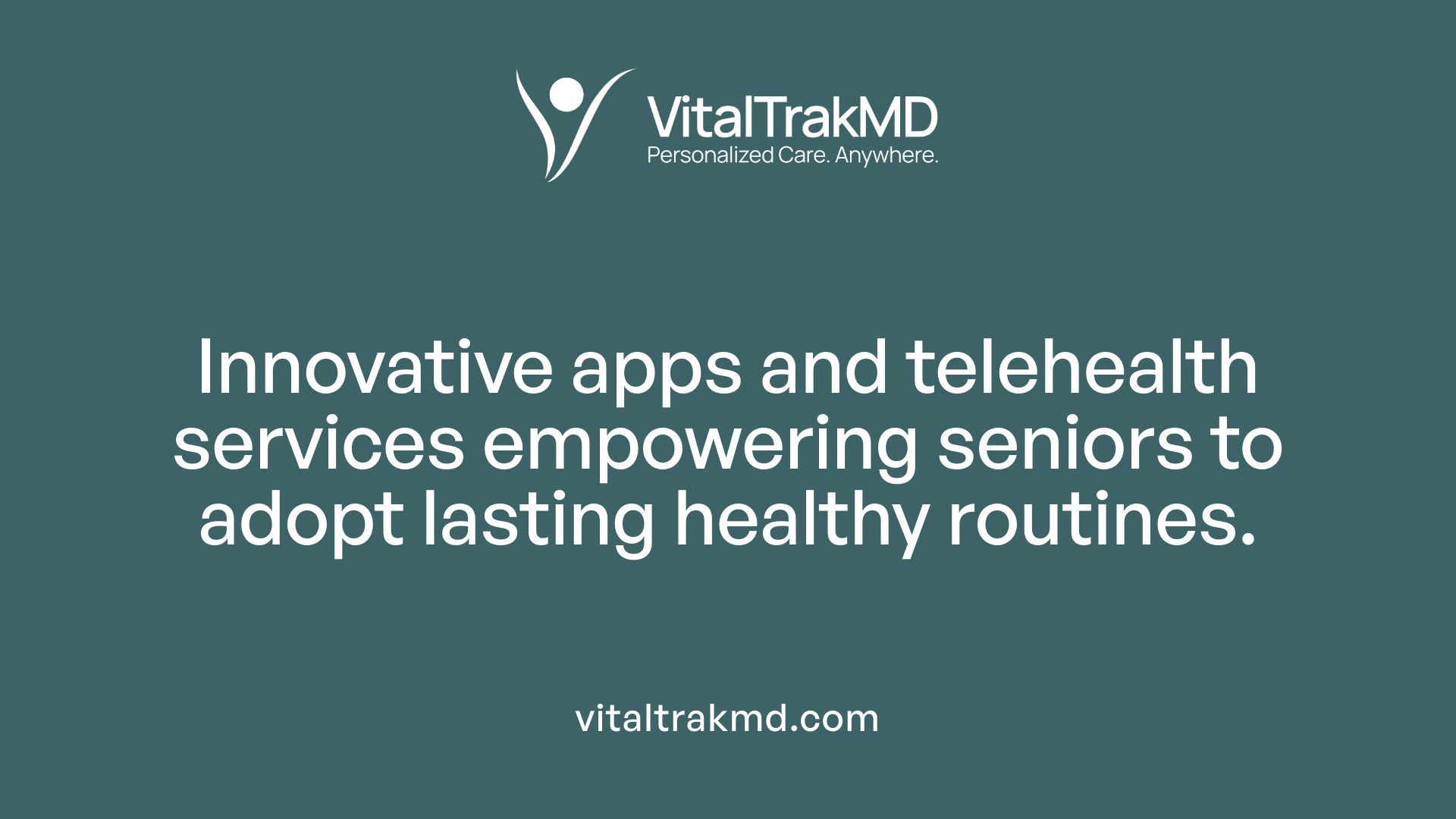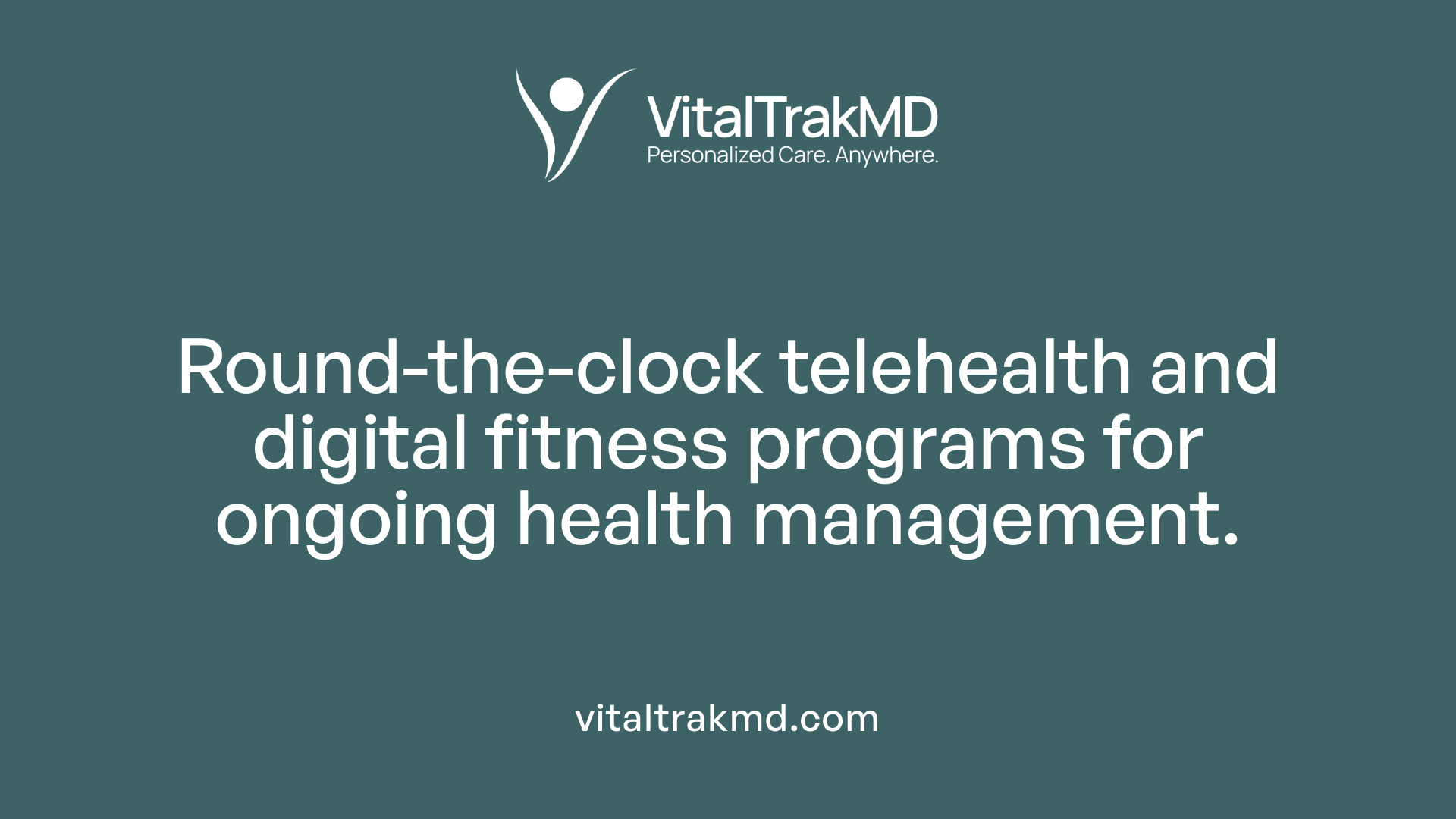How Hybrid Healthcare Supports Long-Term Independence in Seniors

Introduction to Hybrid Healthcare for Seniors
Hybrid healthcare, which combines digital innovations with traditional in-person care, is transforming how seniors manage their health and maintain independence. This approach leverages personalized wellness programs, remote monitoring, coaching, and community support to address chronic conditions and enhance quality of life for older adults.
Comprehensive Wellness Programs Supporting Chronic Condition Management and Prevention

What Are Hybrid Healthcare Components for Seniors?
Hybrid healthcare for seniors combines in-person and digital resources to provide personalized, continuous support. For example, Blue Shield of California's Wellvolution includes coaching, digital tools, and community engagement to help older adults manage health risks and chronic diseases. Programs like the Dr. Dean Ornish Program blend virtual and face-to-face sessions to optimize nutrition and stress management while fostering peer support, enabling seniors to remain engaged and supported regardless of physical limitations.
How Do Chronic Condition Reversal Programs Work?
Programs focused on reversing chronic conditions aim to normalize important health markers such as A1C levels for diabetes, blood pressure for hypertension, and cholesterol levels for hyperlipidemia. By offering digital coaching combined with community support, these initiatives encourage sustainable lifestyle changes. Wellvolution’s approach helps reduce or eliminate medication dependence through personalized plans involving nutrition, physical activity, and stress management.
How Is Disease Prevention Supported Through Digital Coaching and Peer Support?
Disease prevention programs target conditions like type 2 diabetes and heart disease. Through individualized plans addressing exercise, diet, sleep, and stress, participants receive one-on-one coaching via digital platforms. Additionally, peer support groups provide motivation and shared experiences, enhancing adherence to healthy behaviors. This comprehensive support system encourages lasting lifestyle improvements and reduces disease risk.
How Are Physical, Nutritional, and Stress Management Strategies Integrated?
Effective wellness programs integrate multiple aspects of health. Nutrition guidance focuses on healthy eating habits tailored to individual needs, while physical activity recommendations include stretching, aerobics, and strength training to improve mobility and endurance for seniors. Stress management techniques, such as mindfulness practices promoted in programs like Unwinding by Sharecare, round out the approach by enhancing mental well-being. Together, these strategies synergistically promote chronic condition management and prevention.
| Program Component | Description | Benefits for Seniors |
|---|---|---|
| Hybrid Healthcare | Combines in-person and digital support | Greater accessibility, personalized care |
| Chronic Condition Reversal | Focuses on A1C, BP, cholesterol normalization | Reduces medication dependence, improves quality of life |
| Disease Prevention | Digital coaching and peer support | Lowers risk of diabetes and heart disease |
| Integrated Health Strategies | Nutrition, exercise, stress management | Holistic approach improving physical and mental health |
Tailored Weight Management Solutions for Older Adults

What Are the Prevalence and Health Risks of Obesity Among Seniors?
Obesity in seniors is recognized as an excess of body fat, typically measured by a body mass index (BMI) of 30 or higher. Approximately 22.9% of adults aged 50 to 69 and about 15% of those over 70 fall into this category. This condition poses several health risks, including increased chances of cardiovascular diseases, type 2 diabetes, osteoarthritis, sleep apnea, certain cancers, and reduced mobility. These challenges not only shorten lifespan but also significantly impair quality of life.
Which Strategies Promote Safe and Effective Weight Loss in Older Adults?
Weight management for seniors requires careful attention to safety, with emphasis on nutritional counseling and physical activity tailored to individual needs. Programs recommend exercises like stretching, aerobics, and strength training to enhance flexibility, endurance, and muscle mass. The focus avoids aggressive dieting but encourages a gradual weight loss of around 3-4 pounds per week, supported by coaching that targets reduction of cravings and hunger without restrictive dieting.
How Are Nutrition and Exercise Programs Personalized for Seniors?
Personalized plans take into account each senior's health status, muscle and bone health, and other body composition aspects. For instance, the UCI Health Weight Management Program utilizes comprehensive body composition analysis to tailor meal plans and exercise recommendations. Nutritionally complete meal replacements and long-term support help sustain healthy habits. This focus ensures that weight loss efforts preserve muscle and bone density, crucial for maintaining overall mobility and function.
What Programs Support Muscle and Bone Preservation Alongside Fat Reduction?
Certain specialized programs integrate lifestyle modifications that simultaneously promote fat loss and protect musculoskeletal health. These approaches include safe physical activities combined with dietary changes aligned with seniors' physiological needs. Coaching may be digital or in-person, emphasizing sustainable adjustments rather than rapid or unsupervised weight loss. Such programs recognize that preserving muscle and bone strength is essential for preventing frailty and supporting independence in older adults.
Digital Behavior Change Programs Enhance Sustainable Healthy Habits

How do behavioral health apps support sustainable healthy habits?
Behavioral health apps play a pivotal role in helping seniors and other adults establish lasting wellness routines. For example, the Eat Right Now app fosters healthy eating habits by providing tailored tracks focused on mindful eating, weight loss, and diabetes prevention. It integrates coaching, progress tracking, and personalized guidance to support users in making conscious food choices that align with their health goals.
What role do digital coaching and telehealth services have in health behavior change?
Digital coaching offers accessible and personalized support to individuals aiming to improve their lifestyle habits. Programs like Wondr Health combine digital behavior change strategies with personalized nutrition support and medically supervised use of FDA-approved weight loss medications. Telehealth platforms, such as Teladoc, provide 24/7 access to healthcare professionals for medical and behavioral health concerns. Moreover, health coaching through telephone and digital means helps with stress management, smoking cessation, exercise, and weight loss, empowering users to sustain healthier behaviors.
How do programs address stress, sleep, nutrition, and physical activity?
Effective health behavior programs focus on multiple lifestyle factors critical to well-being. For instance, the RealAge Program offers personalized assessments and interventions targeting stress, sleep quality, nutrition, and physical activity — all fundamental aspects impacting overall health. To specifically aid stress reduction and resilience, digital mindfulness programs like Unwinding by Sharecare provide evidence-based tools for mental well-being.
Which programs exemplify mindful eating and digital mindfulness support?
The synergy of mindful eating practices and digital mindfulness support is embodied in apps like Eat Right Now and Unwinding by Sharecare. Eat Right Now facilitates awareness and control over eating patterns, while Unwinding by Sharecare delivers structured mindfulness exercises aimed at reducing stress and fostering emotional balance.
Together, these digital behavior change programs provide seniors and adults with practical, accessible methods to integrate healthier habits into their daily lives, enhancing wellness and chronic condition management through sustained behavioral change.
Integrated Care Models Like PACE Foster Aging in Place and Independence

What is the PACE model?
The PACE (Program of All-Inclusive Care for the Elderly) model is a comprehensive approach to healthcare and social services designed specifically for older adults. It aims to support seniors in maintaining their independence and living safely in their own homes or communities for as long as possible.
How does the interdisciplinary team approach work?
PACE uses an interdisciplinary team of healthcare providers and social service professionals who collaborate closely to address the complex needs of seniors. This team may include doctors, nurses, therapists, social workers, and other specialists who work together in a PACE Center to provide coordinated and personalized care.
Who is eligible for PACE and what services are provided?
Eligibility requirements for PACE include being age 55 or older, residing in the PACE service area, and qualifying for a nursing home level of care while still able to live safely outside a nursing home. Services are comprehensive and include medical care, social support, rehabilitation, and assistance with activities of daily living to promote autonomy.
How does PACE support seniors to remain safely in their communities?
The program focuses on holistic care that prevents hospitalizations and nursing home placements by managing chronic conditions and addressing social determinants of health. By providing integrated medical, social, and rehabilitative services, PACE enables seniors to enjoy improved quality of life and safety in their familiar environments.
Access to Continuous Remote Healthcare and Support Services

How is telehealth availability integrated into senior care programs?
Blue Shield of California offers 24/7 telehealth services through Teladoc, providing nonemergency medical and behavioral health support. This service allows seniors to receive medical guidance anytime, from the comfort of their own homes, reducing the need for in-person visits.
What 24/7 nurse support options are available?
The Nurse Advice Line complements telehealth by giving members around-the-clock access to registered nurses. This immediate support ensures prompt answers to health questions, helping seniors make informed decisions quickly and often avoiding unnecessary emergency visits.
How do digital fitness programs promote physical activity?
Physical activity for seniors is encouraged through programs like Active&Fit Direct™. This initiative offers discounted gym memberships alongside digital workout videos designed specifically to improve flexibility, endurance, and muscle strength. These tools make it easier for seniors to maintain an active lifestyle that supports healthy aging.
Why are these services important for seniors?
Continuous remote healthcare and support services help seniors manage chronic conditions, maintain mobility, and enhance quality of life. The combination of telehealth, nurse advice, and accessible fitness resources creates a supportive environment that empowers older adults to stay independent and healthy.
Personalized Health Assessments and Coaching for Targeted Interventions
How do online health quizzes direct care pathways?
Blue Shield of California offers members an online health quiz that serves as an initial step in personalized care. This quiz evaluates individual health needs and risk factors, then directs members to specific Wellvolution programs tailored for their goals, such as weight loss, chronic disease prevention, or wellness improvement. By guiding members based on their responses, the system ensures they engage with the most relevant interventions early on.
What role does comprehensive body composition analysis play?
Programs like the UCI Health Weight Management Program incorporate detailed body composition analysis to go beyond standard weight measurements. This analysis assesses muscle mass, bone density, water content, and fat levels, allowing practitioners to develop individualized plans that consider overall body health. Such precision helps seniors maintain muscle and bone strength while managing weight safely.
How are personalized meal replacements used in these programs?
The UCI Health program provides nutritionally complete personalized meal replacements as a foundational tool for safe weight loss. These meals ensure participants receive essential nutrients while reducing calorie intake, supporting gradual weight loss without compromising overall nutrition. Customized meal plans help participants build sustainable eating habits tailored to their unique health status and preferences.
How do health coaches and interdisciplinary care teams support members?
Blue Shield’s Wellvolution and associated programs employ health coaches and interdisciplinary teams composed of medical doctors, nurse practitioners, dietitians, and behavioral specialists. These professionals deliver personalized coaching targeting physical activity, nutrition, stress management, and other lifestyle factors. Continuous support, including digital and telephonic coaching, empowers seniors to achieve and maintain health goals, manage chronic conditions, and improve overall well-being through coordinated care.
Holistic Support Systems Including Community and Social Engagement
How is peer support integrated into wellness programs?
Peer support is a vital element in many health and lifestyle programs, including Blue Shield of California’s Wellvolution and Dr. Dean Ornish’s Program for Reversing Heart Disease®. These initiatives offer peer-led group sessions that create a supportive environment for members, helping them stay motivated and accountable. For instance, the Ornish program includes group classes and virtual meetings where participants share experiences and progress, cultivating community and emotional support.
How do programs address mental health and social connections?
Mental health and social connections are addressed through evidence-based digital mindfulness tools and coaching. Programs like Unwinding by Sharecare help reduce stress and build resilience, while health coaching services provide support for stress management and behavioral health. This focus on emotional well-being complements physical health strategies, recognizing that social and psychological factors deeply influence long-term wellness.
What specific support is available for LGBTQ+ seniors?
Blue Shield offers tailored health plan benefits specifically designed to support the LGBTQ+ community, ensuring inclusive care that respects unique health needs and challenges. This commitment provides safe, affirming environments where LGBTQ+ seniors can access programs and services without fear of stigma, promoting health equity and social belonging.
What role does community play in seniors' long-term wellness?
Community serves as an essential pillar for seniors’ long-term wellness by offering social engagement opportunities and helping combat isolation. Programs like PACE incorporate interdisciplinary teams and social services to help older adults remain independent while engaged in their communities. Digital support platforms and group health sessions foster connections that contribute to sustained lifestyle changes and overall well-being.
| Aspect | Description | Impact on Wellness |
|---|---|---|
| Peer Support | Group sessions and community meetings in health programs | Enhances motivation and accountability in behavior change |
| Mental Health Integration | Mindfulness apps and coaching addressing stress and resilience | Supports emotional stability and coping skills |
| LGBTQ+ Tailored Benefits | Inclusive health services respecting unique needs | Promotes equitable access and social inclusion |
| Community Engagement | Social services and group activities within programs like PACE | Reduces isolation and supports independence |
Conclusion: Sustaining Senior Independence Through Hybrid Healthcare
Hybrid healthcare integrates technology with compassionate, personalized in-person care to address seniors' multifaceted health needs. Through comprehensive wellness programs, tailored weight and chronic disease management, and continuous remote support, seniors gain tools to maintain their independence and improve their quality of life. By embracing hybrid care models, healthcare providers empower older adults to live safely and healthfully in their own homes, paving the way for sustainable, long-term independence.
References
Recent articles
Want to Feel Better and Live Healthier?
Join hundreds of patients taking control of their health with personalized care that fits their life – not the other way around.
Rated 4.8/5 by 32+ customers







